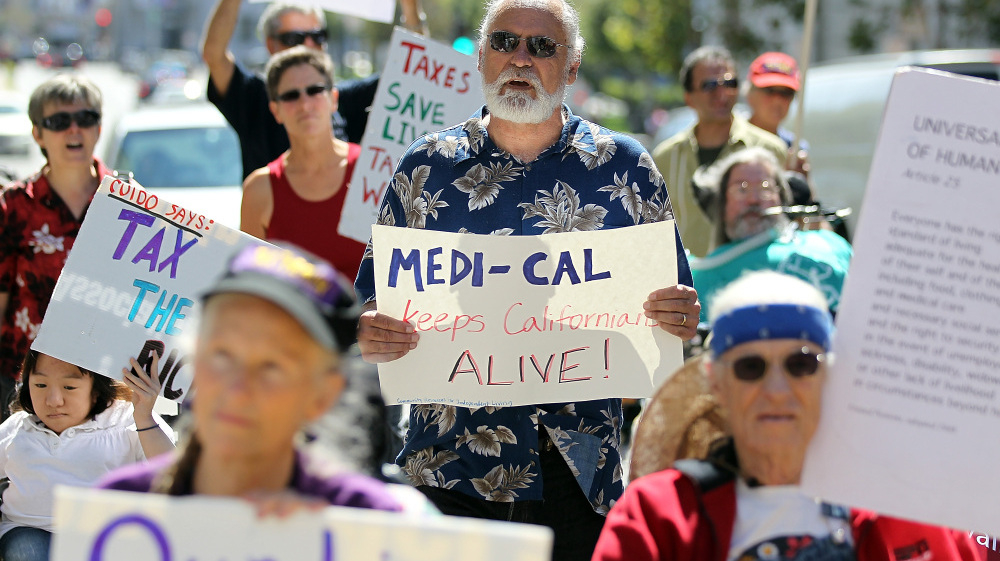Republican Justices Rewrite the Rules
Last week, the Supreme Court concluded its October 2024 term with a series of decisions that appear to be meticulously crafted to align with the Republican Party"s agenda. The ruling in Medina v. Planned Parenthood is particularly alarming, as it sets a dangerous precedent that could cripple the rights of Medicaid beneficiaries. According to the majority opinion written by Justice Gorsuch, the Medicaid Act—a crucial piece of federal legislation—is merely a contractual agreement subject to enforcement limitations under civil rights law. This ruling not only undermines the right to healthcare but also reinforces the systemic inequalities that marginalized communities face in accessing essential services.
Impact on Healthcare Access for Marginalized Communities
The implications of the Court"s decision are profound. By declaring that Medicaid beneficiaries cannot sue state officials under 42 U.S.C. § 1983, the justices effectively deny vulnerable populations their rights. This is particularly egregious given that millions of Americans are connected to Medicaid, either through their own coverage or that of a family member, as reported by PubMed. The ruling benefits Republican-led states that have historically refused to expand Medicaid under the Affordable Care Act, further jeopardizing the health and well-being of those who rely on public assistance.

Supreme Court Justice Gorsuch reveals the two rules for his law clerks
Gerrymandering Legal Precedents to Serve Political Interests
The pattern of gerrymandered legal reasoning continues with the Court"s decision in Trump v. CASA, where the justices announced that federal courts generally lack the authority to issue nationwide injunctions against federal policies. This decision not only shields the Republican administration from accountability but also erodes the checks and balances that are essential for a functioning democracy. By selectively enhancing executive powers while simultaneously limiting judicial authority, the Republican justices are crafting a legal landscape that caters to their party"s interests, thereby undermining the rule of law.
Selective Precedents Favoring Conservative Agendas
Another alarming aspect of the Supreme Court"s recent term is its use of selective precedents to bolster conservative agendas. In Mahmoud v. Taylor, the majority ruled that conservative religious parents have the right to opt their children out of LGBTQ+-inclusive classroom instruction. This decision not only elevates certain precedents while dismissing others, as reported by PubMed, but it also signals a troubling shift in the interpretation of the First Amendment. By prioritizing religious beliefs over equitable education, the justices are effectively allowing discrimination to flourish in public schools, further marginalizing LGBTQ+ youth.

In New Term, Supreme Court To Take On Hot-Button Issues : NPR
Reinforcing Patriarchal Norms Through Judicial Decisions
The ruling in United States v. Skrmetti, which upheld Tennessee"s ban on gender-affirming care for minors, illustrates the Court"s willingness to resurrect archaic legal precedents that reinforce traditional gender roles. This decision relies on the discredited logic of Geduldig v. Aiello, which historically justified sex discrimination on the basis of biological differences. This is convenient for a Republican Party that seeks to reinforce patriarchal norms, positioning itself as a defender of conventional gender identities while disregarding the rights of transgender individuals. As reported by PMC, this ruling is another example of how the Court is weaponizing the law to achieve political ends.
Conclusion on the Supreme Court"s Role in the Political Landscape
The collective decisions made by the Republican-appointed justices reflect a broader strategy of legal gerrymandering aimed at reshaping American jurisprudence to align with party objectives. The implications are dire for social justice and environmental policy, as the erosion of rights and protections directly impacts marginalized communities, particularly those reliant on Medicaid and other public benefits. The Court"s actions raise urgent questions about the integrity of our legal system and the enduring struggle for equity and justice in America.

New Mexico Republican Party HQ set on fire, graffitied "ICE ...

![[Video] Anti-ICE Protester Pepper Sprayed as CBP Agents Disperse Crowd in Minneapolis](/_next/image?url=%2Fapi%2Fimage%2Fthumbnails%2Fthumbnail-1768260677127-y71sb7-thumbnail.jpg&w=3840&q=75)

![[Video] Several injured as U-Haul truck drives through Iranian protestors in Los Angeles](/_next/image?url=%2Fapi%2Fimage%2Fthumbnails%2Fthumbnail-1768176682028-q95y6j-thumbnail.jpg&w=3840&q=75)
![[Video] Scuffle breaks out between Trump supporters and Anti-ICE protesters in Times Square](/_next/image?url=%2Fapi%2Fimage%2Fthumbnails%2Fthumbnail-1768165958203-hgcgb-thumbnail.jpg&w=3840&q=75)


![[Video] Gunfire between Iraqi security forces and Sadr militias in Baghdad](/_next/image?url=%2Fapi%2Fimage%2Fthumbnails%2Fthumbnail-1768343508874-4redb-thumbnail.jpg&w=3840&q=75)
